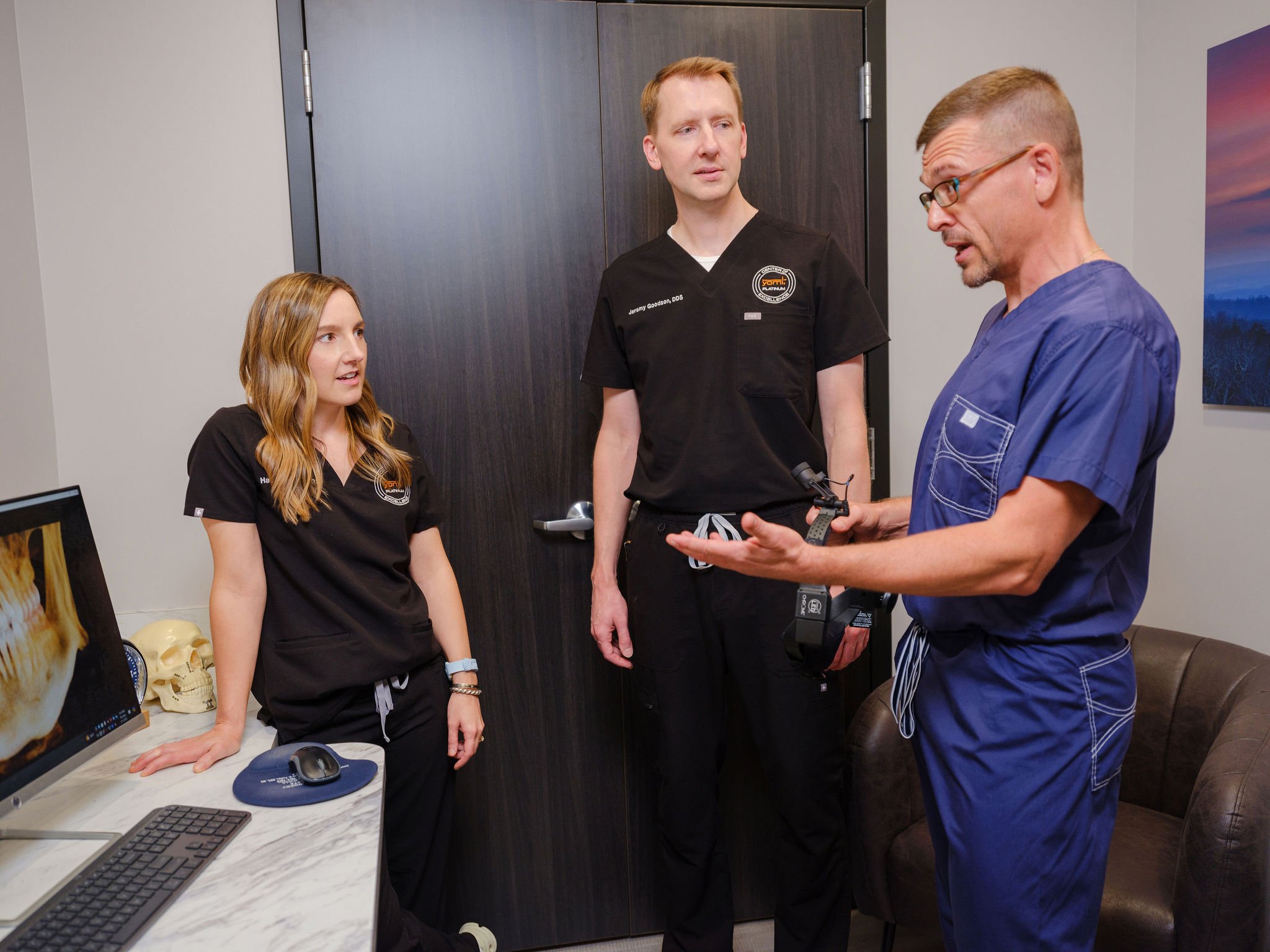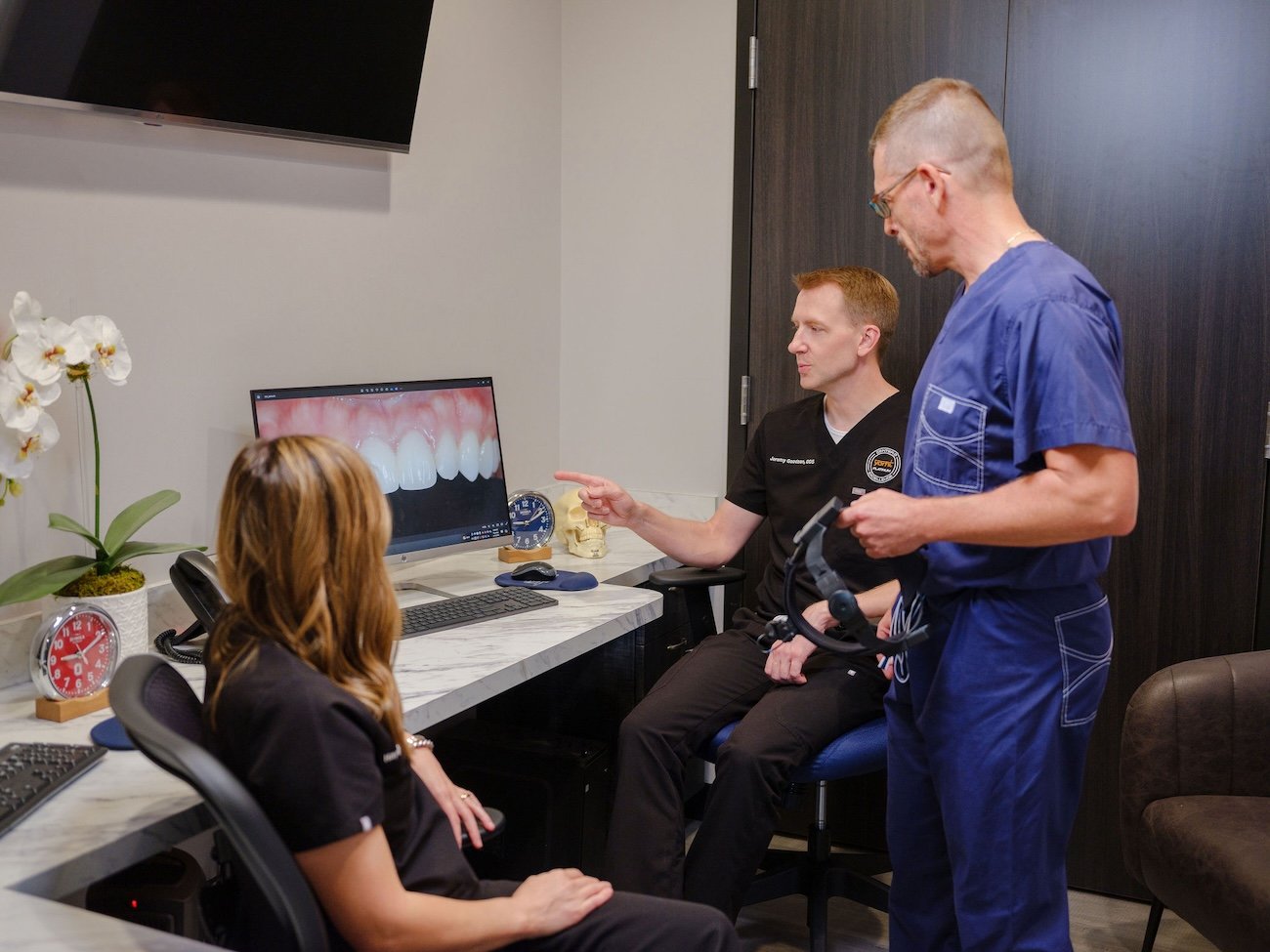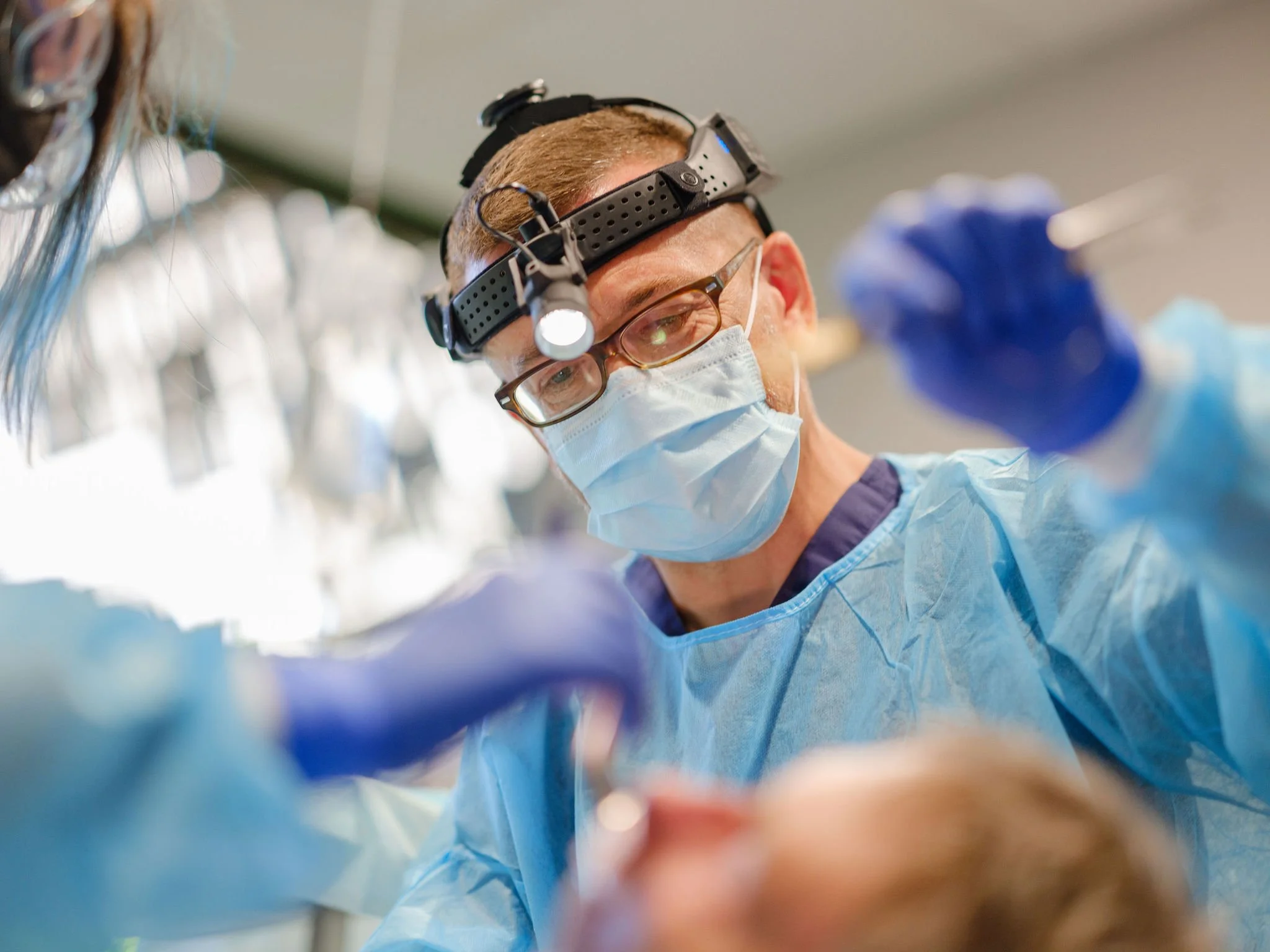
Jaw Surgery
Correct Jaw Misalignment with Our Jaw Surgery Services
Understanding Jaw Misalignment
Jaw misalignment occurs when the upper and lower jaws do not align properly, leading to various oral health issues. This condition can make everyday activities like eating, speaking, and even breathing difficult. While some jaw misalignment issues can sometimes be corrected with orthodontic treatment, severe cases often require corrective jaw surgery, also known as orthognathic surgery, to fully restore function.
About Orthognathic Surgery
Orthognathic surgery is a specialized procedure designed to correct severe jaw misalignment. In the initial consultation, Dr. Robert Bryan and Dr. Jeremy Goodson work closely with orthodontists to develop a personalized treatment plan that addresses both functional and aesthetic concerns. This surgery can significantly enhance a patient’s quality of life by improving their ability to chew, speak, and breathe comfortably.
Signs You May Need Jaw Surgery
Jaw misalignment is a more common issue than many people realize, and it can lead to serious health problems. You may be a candidate for jaw surgery if you experience:
Difficulty chewing or swallowing food
Chronic pain in the jaw or face
Breathing difficulties, including sleep apnea
Trouble opening or closing your mouth
Issues with biting down properly
If you recognize any of these symptoms, it’s essential to seek a professional assessment to determine if jaw surgery is the right solution for you.
What to Expect From Jaw Surgery
Before Surgery
Corrective jaw surgery is a precise and collaborative effort between your oral surgeon and orthodontist. The process begins with an initial consultation, where 3D imaging is used to thoroughly assess the misalignment. Orthodontic treatment usually precedes surgery, as braces are used to position the teeth for optimal surgical results.
During the Surgery
Our jaw surgery is performed under general anesthesia. During the procedure, Dr. Bryan or Dr. Goodson will carefully separate and reposition your jaw to its correct alignment. This process can take anywhere from 2 to 4 hours.
Recovery Process
After surgery, you can expect about two weeks of healing, during which a soft food diet is recommended. Once healed, your orthodontist will make final adjustments to perfect your bite, with the entire treatment process taking approximately two years.
Hear From Some of Our Patients
Bryce's Double Jaw Surgery
Jonathan's Jaw Surgery
Alison's Jaw Surgery
Benefits of Jaw Surgery
Significantly improved quality of life
Elimination of sleep apnea or TMJ issues
Improved Jaw Function
Enhanced Facial Appearance
Reduced Wear on Teeth
Alleviated Pain
FAQ: Common Questions About Jaw Surgery
-
Orthognathic surgery, also known as corrective jaw surgery, is a procedure to correct misalignment of the jaws. This surgery improves jaw function, facial appearance, and overall oral health. Orthognathic surgery is one of the most transformational procedures in the oral surgery specialty and can significantly improve your quality of life.
-
Recovery from jaw surgery typically takes about two weeks, during which patients should follow a soft food diet. Full treatment, including orthodontic adjustments and consultations, usually spans around two years.
-
No, jaw surgery is not necessary for all cases of jaw misalignment. The severity of the misalignment largely determines the appropriate treatment. For mild to moderate cases, orthodontic treatments such as braces or clear aligners can often correct the misalignment by gradually moving the teeth into better alignment. These non-surgical methods are typically sufficient for improving bite function and aesthetics.
However, when the misalignment is severe—such as when the upper and lower jaws are significantly out of alignment—orthodontic treatment alone may not be enough. In these cases, corrective jaw surgery, or orthognathic surgery, is often recommended to reposition the jaws and achieve optimal results. Surgery is particularly necessary when the misalignment affects not only the appearance of the face but also vital functions like chewing, speaking, and breathing. A thorough evaluation by an oral surgeon and orthodontist is essential to determine the best course of action for each individual case.
-
Yes, corrective jaw surgery can significantly enhance your ability to breathe, especially for patients suffering from conditions like sleep apnea or other breathing-related issues. Jaw misalignment can contribute to airway obstruction, making it difficult to breathe properly during sleep and even while awake. In cases where the jaw's position restricts the airway, surgery can be highly effective in correcting the underlying structural issues.
In addition to improving breathing during sleep, patients often find that daytime breathing is easier as well, particularly during physical activities. The improvement in airflow can also enhance your overall energy levels and well-being, making corrective jaw surgery not only a solution for misalignment but also a potential life-changer for those with breathing difficulties.
A thorough consultation with an oral surgeon can help determine whether jaw surgery is the right approach for addressing your breathing concerns.
-
If you experience chronic jaw pain, difficulty chewing, breathing issues, or problems with your bite, you may need jaw surgery. A consultation with an oral surgeon can provide a definitive diagnosis and treatment plan.

We're Here to Help
If you have any questions or concerns about your treatment, our team is here to support you every step of the way. Don’t hesitate to reach out to us for more information or to schedule an appointment.



